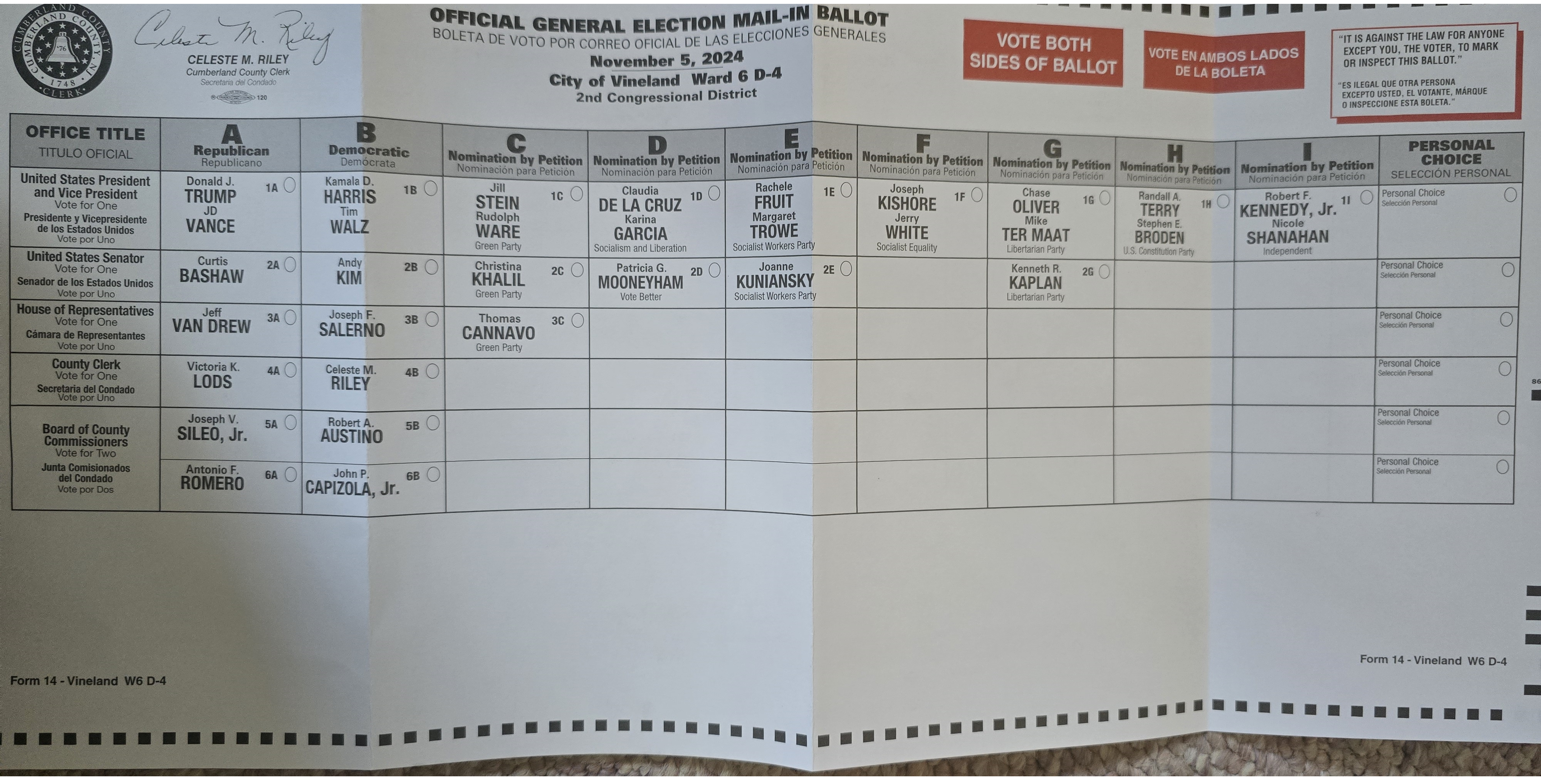What does a County Clerk do?
County clerks are elected or appointed officials responsible for maintaining public records and administering various government functions at the county level. Their duties
can vary depending on the state and specific county, but generally, county clerks are responsible for the following:
Elections Administration: County clerks often oversee the administration of local, state, and federal elections within their jurisdiction. This includes managing voter registration, preparing ballots, training poll workers, overseeing polling places, and ensuring that election laws are followed. They also handle the certification of election results.
Issuing Licenses and Permits: The county clerk's office is typically responsible for issuing various licenses and permits, such as marriage licenses, business licenses, and permits for hunting, fishing, and other activities.
Public Notices and Legal Filings: County clerks handle the publication of public notices and the filing of legal documents, such as court orders, liens, and other official records. They also manage the county's official seal and may be responsible for notarizing documents.
Board and Commission Support: The county clerk often serves as the clerk to the county board of commissioners or other governing bodies, preparing agendas, recording minutes, and maintaining official records of meetings.
Custodian of County Records: The county clerk maintains various other county records, including those related to county government operations, contracts, and legal documents. They ensure these records are preserved and accessible as required by law.
Administration of Oaths: County clerks are authorized to administer oaths of office to public officials and may also handle oaths for witnesses in certain legal proceedings.
Real Estate Transactions: The county clerk's office records real estate transactions, including deeds, mortgages, liens, and other property-related documents. They ensure that these records are accurate and up-to-date.
Genealogy and Historical Records: County clerks often maintain historical records that are used for genealogical research. They may provide access to these records or assist with research requests.
Providing Public Access: County clerks ensure that the public has access to the records they maintain. This may involve assisting individuals with document searches, providing certified copies of records, and responding to public inquiries.
Election Filing and Candidate Information: The county clerk’s office often handles candidate filings for local elections, including verifying eligibility, accepting nomination papers, and providing information about campaign requirements.
Learn More
Record Keeping: The county clerk is the official keeper of public records, including birth and death certificates, marriage licenses, property deeds, and other vital records. They ensure these documents are accurately recorded, stored, and accessible to the public.Elections Administration: County clerks often oversee the administration of local, state, and federal elections within their jurisdiction. This includes managing voter registration, preparing ballots, training poll workers, overseeing polling places, and ensuring that election laws are followed. They also handle the certification of election results.
Issuing Licenses and Permits: The county clerk's office is typically responsible for issuing various licenses and permits, such as marriage licenses, business licenses, and permits for hunting, fishing, and other activities.
Public Notices and Legal Filings: County clerks handle the publication of public notices and the filing of legal documents, such as court orders, liens, and other official records. They also manage the county's official seal and may be responsible for notarizing documents.
Board and Commission Support: The county clerk often serves as the clerk to the county board of commissioners or other governing bodies, preparing agendas, recording minutes, and maintaining official records of meetings.
Custodian of County Records: The county clerk maintains various other county records, including those related to county government operations, contracts, and legal documents. They ensure these records are preserved and accessible as required by law.
Administration of Oaths: County clerks are authorized to administer oaths of office to public officials and may also handle oaths for witnesses in certain legal proceedings.
Real Estate Transactions: The county clerk's office records real estate transactions, including deeds, mortgages, liens, and other property-related documents. They ensure that these records are accurate and up-to-date.
Genealogy and Historical Records: County clerks often maintain historical records that are used for genealogical research. They may provide access to these records or assist with research requests.
Providing Public Access: County clerks ensure that the public has access to the records they maintain. This may involve assisting individuals with document searches, providing certified copies of records, and responding to public inquiries.
Election Filing and Candidate Information: The county clerk’s office often handles candidate filings for local elections, including verifying eligibility, accepting nomination papers, and providing information about campaign requirements.
ELECTION DATE: November 5th, 2024
SAMPLE BALLOT
Below is only an interactive ballot designed to help voters using this website to organize their choices based on specific positions. Please visit our Official Ballots Page or click the foldout below to become familiar with what you will see in the voting booth.
General Election Ballot
If on desktop, right click the image and select 'open in new tab' for a larger image

( Click or tap on candidate name to learn more about them )
COUNTY CLERK
DEMOCRATIC
DEMOCRATA
OFFICE TITLE
TITULO OFICIAL
A
Democratic
Democrata
B
Democratic
Democrata
PERSONAL CHOICE
SELECCION PERSONAL
County Clerk
Vote for One
Secretario del Condado
Vota por Uno
Personal Choice
Seleccion Personal
0